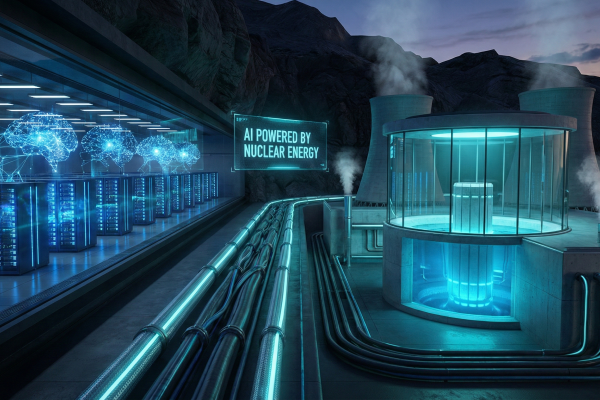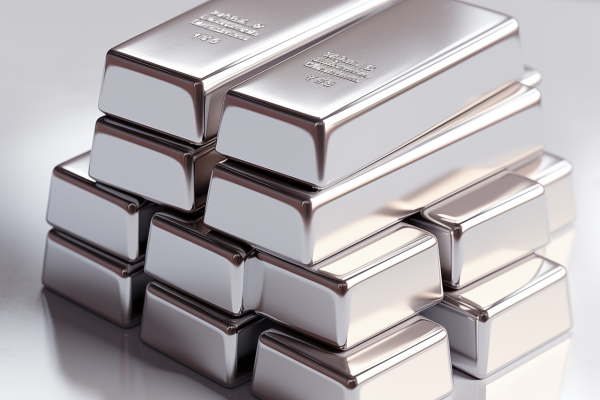July 23rd, 2025 | 07:15 CEST
Critical raw materials such as rare earths in the spotlight – How European Lithium is saving RENK, BYD, and your returns
The global battle for lithium and rare earths will determine the future viability of industry. While countries are investing billions to gain control of critical value chains, companies without secure access to raw materials are becoming pawns in the midst of geopolitical tensions. A notable example is the Pentagon's investment in MP Materials. RENK, a defense specialist in high-performance transmissions, and BYD, the electric mobility giant, are existentially dependent on stable supply chains. This is exactly where European Lithium comes in: the Company could break Europe's strategic dependence through domestic production.
time to read: 5 minutes
|
Author:
Armin Schulz
ISIN:
EUROPEAN LITHIUM LTD | AU000000EUR7 , RENK AG O.N. | DE000RENK730 , BYD CO. LTD H YC 1 | CNE100000296
Table of contents:

"[...] China's dominance is one of the reasons why we are so heavily involved in the tungsten market. Here, around 85% of production is in Chinese hands. [...]" Dr. Thomas Gutschlag, CEO, Deutsche Rohstoff AG
Author
Armin Schulz
Born in Mönchengladbach, he studied business administration in the Netherlands. In the course of his studies he came into contact with the stock exchange for the first time. He has more than 25 years of experience in stock market business.
Tag cloud
Shares cloud
European Lithium – Rare earths and lithium under one roof
Since June, European Lithium has been focusing on the Tanbreez project in Greenland. An ongoing 2,000 m drilling program is expected to significantly expand the known resources of 22.56 million tons of rare earth deposits. Initial core assessments indicate high eudialyte content, a carrier of valuable rare earth metals. However, the laboratory results in 3-4 months will be decisive. At the same time, the feasibility study is progressing and is expected to provide bankable data for the mining decision by the fourth quarter of 2025. The timing is exciting for investors. If the resource expansion is successful, Tanbreez will be one of the few significant Western rare earth projects closer to realization.
The strategic course has been set. The US Export-Import Bank has already signaled potential financing assistance of up to USD 120 million. This non-dilutive solution could pave the way for production, provided that approvals and studies are successful. European Lithium owns a 7.5% stake in the project. Its subsidiary Critical Metals Corp. (CMC) currently holds 42% of the project and can increase its stake to 92.5%. According to the announcement on July 16, European Lithium owns approximately 64 million shares of CMC, which currently represent a value of approximately USD 246 million. Tanbreez is geopolitically relevant for Europe because it reduces dependence on Chinese supply chains for critical high-tech metals.
While Tanbreez is in the spotlight, the Wolfsberg project in Austria is taking shape. As Europe's first fully approved lithium mine, it is expected to supply battery-grade lithium hydroxide from 2026/27. A well-known partner is already on board. BMW secures future lithium production for its electric mobility. The Wolfsberg project addresses Europe's most pressing issue: ensuring local security of supply without lengthy supply chains. Despite the recent sharp rise in its share price to AUD 0.098, the Company is currently undervalued. At a current share price of AUD 0.089, the market capitalization is around AUD 130 million. Given that the stake in the subsidiary alone is worth USD 246 million, there is potential for catch-up here.
RENK – Capacity expansion progresses
RENK started 2025 with record orders. New orders received multiplied to EUR 549 million in the first quarter, while revenue rose by 15% to EUR 273 million. Operating profit (EBIT) climbed by 38% with a margin of 14.1%. The core business with vehicle mobility systems (VMS) remains the driving force, contributing EUR 172 million in revenue alone. A key factor for this high-performance technology is the demand for rare earths, which are also needed in many other areas of defense. The security of supply of these raw materials remains a critical lever, especially in the event of global supply bottlenecks.
Internationalization and production expansion are progressing. The new factory in India strengthens the Company's presence in growth markets and enables more flexible order processing. At the same time, major orders are pouring in, such as for transmission deliveries to Lithuania and the US. This is complemented by strategic alliances, such as the recently concluded partnership with robotics specialist ARX. The aim is to develop autonomous vehicle functions and digitally transform existing systems. This cooperation underscores RENK's focus on future technologies beyond purely mechanical solutions.
RENK is structurally benefiting from rising defense budgets in NATO countries. The Company itself is investing heavily, around EUR 500 million, in capacity expansion and more resilient supply chains. The forecasts remain ambitious. Revenue of over EUR 1.3 billion is expected for 2025, with a medium-term target of EUR 2 billion. The challenges lie in the volatility of geopolitical conditions and dependence on high-performance raw materials. Nevertheless, RENK is consolidating its role as a systemically important supplier in a market that is expected to grow in the long term, thanks to its operational strength and technological depth. The share price is currently trading at EUR 71.87.
BYD – Upswing with obstacles
The shift to electric vehicles has massive consequences for raw material demand. Compared to traditional gasoline-powered engines, electric vehicles require significantly more metals and minerals. Experts estimate that this figure is up to six times higher. Lithium for batteries and rare earths are particularly in demand. This development is being driven by both political regulations and market trends. For example, the EU plans to require large car rental companies to purchase only electric vehicles from 2030 onwards. Such initiatives are boosting demand for manufacturers with strong EV production capabilities, like BYD. However, shortages of these critical materials remain a risk for the entire industry.
BYD scores with vertical integration: In-house battery and chip production enable cost advantages and an aggressive pricing policy. Most recently, the Company lowered the prices of some of its electric vehicles by nearly a third in order to defend its market share. In 2024, sales rose by 41% to 4.27 million vehicles. However, competition is eating into margins. Despite robust sales growth, sales figures are no longer rising quite as quickly. The ambitious target of 5.5 million units for 2025 appears ambitious.
Internationalization is BYD's response to domestic price pressure. The Company is expanding its presence in Europe, Latin America, and Asia and responding skillfully to trade barriers. Planned factories in Hungary and Brazil are intended to circumvent tariffs. Local production has now started in Brazil, a strategic move against new import duties. At the same time, BYD is pushing into higher segments with premium models such as the U8 SUV. However, geopolitical tensions, such as the threat of special tariffs in the EU or the US, remain stumbling blocks. The expansion is promising, but it is not a sprint. The share price has recently risen again and is currently available for EUR 14.60.
The strategic importance of critical raw materials such as lithium and rare earths is shaping the future of industry: MP Materials' stake in the Pentagon shows how geopolitics is driving raw material supply. European Lithium, with Wolfsberg and the promising Tanbreez project, offers Europe a way out of its dependence on imports – a key factor for investors. RENK, a defense specialist for high-performance transmissions, is struggling to achieve more resilient supply chains despite record orders and EUR 500 million in investments, as production needs to be expanded. BYD is using vertical integration for aggressive expansion in electric mobility, but is being held back by trade barriers and dwindling margins.
Conflict of interest
Pursuant to §85 of the German Securities Trading Act (WpHG), we point out that Apaton Finance GmbH as well as partners, authors or employees of Apaton Finance GmbH (hereinafter referred to as "Relevant Persons") may hold shares or other financial instruments of the aforementioned companies in the future or may bet on rising or falling prices and thus a conflict of interest may arise in the future. The Relevant Persons reserve the right to buy or sell shares or other financial instruments of the Company at any time (hereinafter each a "Transaction"). Transactions may, under certain circumstances, influence the respective price of the shares or other financial instruments of the Company.
In addition, Apaton Finance GmbH is active in the context of the preparation and publication of the reporting in paid contractual relationships.
For this reason, there is a concrete conflict of interest.
The above information on existing conflicts of interest applies to all types and forms of publication used by Apaton Finance GmbH for publications on companies.
Risk notice
Apaton Finance GmbH offers editors, agencies and companies the opportunity to publish commentaries, interviews, summaries, news and the like on news.financial. These contents are exclusively for the information of the readers and do not represent any call to action or recommendations, neither explicitly nor implicitly they are to be understood as an assurance of possible price developments. The contents do not replace individual expert investment advice and do not constitute an offer to sell the discussed share(s) or other financial instruments, nor an invitation to buy or sell such.
The content is expressly not a financial analysis, but a journalistic or advertising text. Readers or users who make investment decisions or carry out transactions on the basis of the information provided here do so entirely at their own risk. No contractual relationship is established between Apaton Finance GmbH and its readers or the users of its offers, as our information only refers to the company and not to the investment decision of the reader or user.
The acquisition of financial instruments involves high risks, which can lead to the total loss of the invested capital. The information published by Apaton Finance GmbH and its authors is based on careful research. Nevertheless, no liability is assumed for financial losses or a content-related guarantee for the topicality, correctness, appropriateness and completeness of the content provided here. Please also note our Terms of use.




